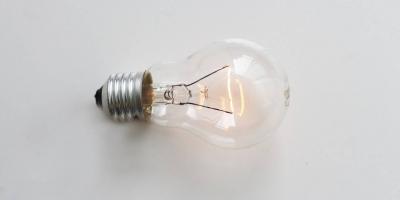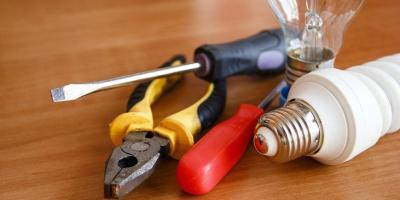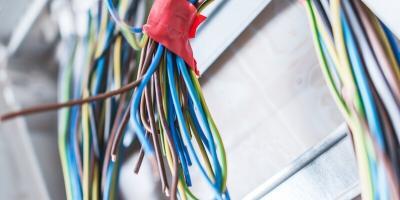Electricity is the linking element between technology and the progress of Sydney. It powers every gadget and appliance in your home and illuminating the large part of the city at night.
However, it’s difficult to imagine when everyone gathers to watch a good movie in the living room, but everything went black‒cause another circuit breaker trips.
It’s quite common for decade-old-houses to experience nuisance tripping of the circuit breaker. The tripping means it detects some excess in the current load of the electrical system. Then it switches the system off to prevent your circuit from overheating and cause more damages.
Moreover, the possibility of tripping breakers does not exclude modern houses. The tripping is a good sign that your circuit breakers are doing their job of protecting you from electrocution, electric shock and house fires. But when its frequently tripping, there are some serious underlying issues you should not ignore.
Safeguarding your family from any electrical mishaps is the most important thing to do. That said, you should know why it happens and how to avoid circuit breaker from tripping.
Why Does a Circuit Breaker Trips?
Before you can avoid circuit breaker from tripping, you should know first why it continually trips. There are mainly three possible reasons why your circuit breaker could frequently trip.
Circuit Overloads
One of the main reasons for the frequent breaker tripping is circuit overloads. It occurs when you try to use more electricity than the actual capacity of your circuit. For example, connecting your old appliance draws more amps that can cause the circuit to overload.
Short Circuits
Short circuits are a more potentially dangerous cause of tripping breakers. It happens when the hot wire in your electrical outlets touches the neutral wire. The contact causes the current to cross between the two wires that should never touch with each other, then it overheats and can cause house fires.
Aside from the wire contacts, the potential culprits for the short circuit are loose connection, damaged wirings or improper wiring. Your senses can quickly identify short circuits: you may hear a popping sound, see smokes or blackening outlet and even smell burnt wires.
Ground Fault
Ground faults are similar to short circuits, only that the hot wire touches the grounding wire. More electricity passes through the course that it can’t handle, and the circuit breaker starts tripping. It’s evident when you smell burnt odour around your outlets or any discolourations.
Prevent Circuit Breaker Tripping
After knowing what causes circuit breaker from tripping, you might now have some ideas on what to do to avoid it. Here are some of the things you can do to prevent such tripping from happening:
Run Fewer Appliances
The excessive usage of different appliances at a time can overload the circuit. Notably, overloading causes tripping of breaker circuits, and it’s essential only to run fewer devices. Unplug the unused appliances as current still runs through these items and adds to the load of the system.
Redistribute Electrical Devices
If you cannot afford to run fewer appliances, then it’s a better idea to redistribute the electrical devices in different circuits. Knowingly, drawing out too many machines in the same circuit can overload it. Also, try to spread the most significant energy users if you have fewer outlets.
But if you only have one circuit, for example, in your kitchen, then it’s better to add more circuits to expand your current load.
Inspect Frayed Wires
Always make sure none of your appliances or equipment has frayed, damaged or melted wirings. The wirings are not immune to wear and tear; thus, it’s essential to inspect it every time and then. Ensuring your wires and cords in good condition can reduce the possibility of a short circuit, and circuit breaker won’t trip in effect.
Avoid Using Extension Chords
If your room has limited outlets, it’s tempting to use an extension wire. But never use it to increase the number of appliances you can plug-in. It can add to the load of the circuit and trips your circuit breaker.
Replace Old Electrical Components
Over time, electrical components get old and damage. These old components are not efficient enough when current runs through them, and it’s easy to overheat or get damaged. Also, the excessive current allows circuit breaker trips and might shut your entire circuit permanently.
Moreover, equip your household with LED lights and inverter technology to lighten the load substantially. In this way, you can altogether avoid circuit breaker from tripping.
Install GFCI outlets
The GFCI or ground-fault circuit interrupter can detect and restrict first the overcurrent in the outlets. As an effect, it prevents circuit breakers from tripping. Installing GFCI in vulnerable areas such as your bathrooms and kitchen can ensure the current remains low and maintain the circuit breaker active.
Furthermore, the device provides a new level of your home’s electrical safety. It’s also advisable to install this near the sink, pool, and even in bedrooms to save your loved ones in the event of accidental short.
Conclusion
At any event of electrical mishaps, circuit breakers trip to protect the electrical system. Also, the frequent tripping of the breakers might have underlying issues that you should not ignore. It might trip due to circuit overload, short circuit and ground fault.
Moreover, avoiding the tripping of circuit breakers are essential to prevent electrical fire, shock and electrocution. There are also numerous ways such as running fewer appliances, installing GFCI outlets and many more to avoid tripping from happening.
Gordon Powers is the best team when it comes to fixing your frequent tripping circuit breakers. Our licensed level 2 electricians can repair, inspect and install new electrical components in your household to ensure that breakers won’t trip again. We will make sure that your electrical system is efficient as we aim every family in Sydney safe from any electrical mishaps.
Call our friendly staff at (02) 9199 7480 for a free quote today.










